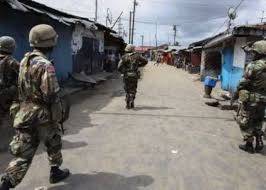The Bawku Chieftaincy Conflict: A Persistent Threat to Peace and Development
The Bawku Chieftaincy conflict, rooted in historical tensions between the Kusasi and Mamprusi ethnic groups, continues to escalate, threatening the stability and development of the area. This long-standing dispute over traditional leadership has become a flashpoint for violence, with sporadic gunfire, deadly attacks, and the use of sophisticated weapons frequently reported. The deteriorating security situation has left many residents in fear, further exacerbating an already fragile socio-economic landscape.
At the heart of this conflict lies a deep-seated disagreement over the rightful occupants of the Bawku skin, a traditional leadership position that holds both symbolic and administrative significance. The Kusasi and Mamprusi factions, each laying claim to the chieftaincy, have engaged in protracted legal battles and political maneuvering. Despite numerous court rulings and mediation efforts, the crisis remains unresolved, with both sides entrenched in their positions.
Attempts to broker peace through dialogue have yielded limited results. Traditional councils, local authorities, and even national leaders have called for calm and reconciliation, but the absence of trust between the factions has rendered these efforts ineffective. The sporadic violence has not only claimed lives but also displaced families, disrupted livelihoods, and hindered access to essential services such as healthcare and education.
Compounding the situation is the proliferation of sophisticated weaponry in the area, raising the stakes of the conflict. Armed groups linked to both factions have been accused of carrying out attacks that undermine the safety of civilians and law enforcement personnel. The influx of weapons has also heightened fears of the conflict spilling over into neighboring regions, further destabilizing northern Ghana.
To address this growing crisis, a multifaceted approach is needed. The government must prioritize the disarmament of armed factions and intensify security measures in the area. Simultaneously, sustained dialogue involving neutral mediators and respected traditional leaders is essential to rebuild trust and foster long-term reconciliation. Furthermore, development initiatives aimed at improving livelihoods and infrastructure could help mitigate the socio-economic drivers of the conflict.
The Bawku Chieftaincy conflict serves as a grim reminder of the destructive power of unresolved historical grievances. Without decisive and sustained action, the situation risks spiraling further out of control, with devastating consequences for the people of Bawku and the broader Ghanaian society.



No comments yet
Be the first to share your thoughts!